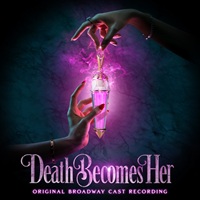 Original Broadway Cast, 2025 (Concord Theatricals)
Original Broadway Cast, 2025 (Concord Theatricals)  (3 / 5) Would anyone really want to live forever? Only if it’s with Megan Hilty and Jennifer Simard. These two leading ladies are the crown jewels of Death Becomes Her, and they do a great job of filling some very big shoes: Hilty is Madeline Ashton, the role Meryl Streep played in the 1992 film of the same title, while Simard is Helen Sharp, played by Goldie Hawn in the flick. As presented in the stage show’s book, by Marco Pennette, the women are supposedly friends — “I love her like a twin…who stole my nutrients in the womb,” states Helen — but they’re constantly trying to outdo one another in looking youthful and in winning and retaining the affections of a hapless plastic surgeon named Ernest Menville (Christopher Sieber). When both Madeline and Helen discover the mysterious Viola Van Horn (Michelle Williams, of Destiny’s Child fame), who offers a magic potion to keep them young forever, their rivalry continues and increases to a much higher level. Hilty as Madeline is a campy delight throughout the cast album, beginning with the first track, “For The Gaze,” a clever tribute to the 1992 film’s cult status among the queer community. And Simard’s performance here is truly special; her unique talents are perfectly suited to the material, her line readings instantly iconic and hilarious. Both leading ladies get ample opportunity to belt in this score, culminating in their final sweet-but-sardonic duet, “Alive Forever.” Sieber as Menville also comes across well on the recording, even if his featured song is a lifeless number, “The Plan,” that doesn’t justify its own existence. Unfortunately, Williams as Viola does not rise to the level of the other performers, and without the visuals of the elaborate costumes she wears in the Broadway production, her presence on the album is bland rather than enticing. The score, by Julia Mattison and Noel Carey, abounds in character-driven songs such as “Tell Me, Ernest” and “Let’s Run Away Together,” but the melodies are unmemorable, even after multiple hearings. Ultimately, the success of this recording relies more on the gifts of its talented cast than the quality of the music and lyrics, but with Hilty and Simard on hand, it’s hard to complain. — Forrest Hutchinson
(3 / 5) Would anyone really want to live forever? Only if it’s with Megan Hilty and Jennifer Simard. These two leading ladies are the crown jewels of Death Becomes Her, and they do a great job of filling some very big shoes: Hilty is Madeline Ashton, the role Meryl Streep played in the 1992 film of the same title, while Simard is Helen Sharp, played by Goldie Hawn in the flick. As presented in the stage show’s book, by Marco Pennette, the women are supposedly friends — “I love her like a twin…who stole my nutrients in the womb,” states Helen — but they’re constantly trying to outdo one another in looking youthful and in winning and retaining the affections of a hapless plastic surgeon named Ernest Menville (Christopher Sieber). When both Madeline and Helen discover the mysterious Viola Van Horn (Michelle Williams, of Destiny’s Child fame), who offers a magic potion to keep them young forever, their rivalry continues and increases to a much higher level. Hilty as Madeline is a campy delight throughout the cast album, beginning with the first track, “For The Gaze,” a clever tribute to the 1992 film’s cult status among the queer community. And Simard’s performance here is truly special; her unique talents are perfectly suited to the material, her line readings instantly iconic and hilarious. Both leading ladies get ample opportunity to belt in this score, culminating in their final sweet-but-sardonic duet, “Alive Forever.” Sieber as Menville also comes across well on the recording, even if his featured song is a lifeless number, “The Plan,” that doesn’t justify its own existence. Unfortunately, Williams as Viola does not rise to the level of the other performers, and without the visuals of the elaborate costumes she wears in the Broadway production, her presence on the album is bland rather than enticing. The score, by Julia Mattison and Noel Carey, abounds in character-driven songs such as “Tell Me, Ernest” and “Let’s Run Away Together,” but the melodies are unmemorable, even after multiple hearings. Ultimately, the success of this recording relies more on the gifts of its talented cast than the quality of the music and lyrics, but with Hilty and Simard on hand, it’s hard to complain. — Forrest Hutchinson
Category Archives: D-F
Far From Heaven
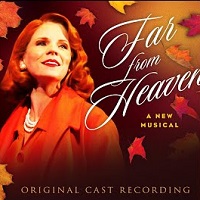 Original Off-Broadway Cast, 2013 (PS Classics)
Original Off-Broadway Cast, 2013 (PS Classics)  (3.5 / 5) Parts of Scott Frankel’s score for this musical, based on the 2002 film of the same title, are uncommonly intricate. The beginning of the album is especially worthy of close listening, as Frankel slowly introduces melodies that will return throughout the score in inventive ways. However, the quality of the songs levels off somewhere in the middle of the piece, and the show’s sentimentality can begin to grate on listeners. Michael Korie’s lyrics are appropriate, if undistinguished. The book, by Richard Greenberg, adheres closely to the plot of the movie and revolves around the central character: Cathy Whitaker (Kelli O’Hara), a housewife in 1950s Connecticut whose husband is a closeted gay man, played by Steven Pasquale. This secret, along with an unexpected relationship between Cathy and her Black gardener, Raymond (Isaiah Johnson), are the show’s two main sources of drama. O’Hara and Pasquale are vocally exquisite throughout the recording, but they feel a little hemmed-in by their roles. One might say that O’Hara’s deft navigation of “Autumn in Connecticut” and “Once Upon a Time” is better than these songs deserved, and while Pasquale is not given many opportunities to show off his powerful voice, his performance of “If It Hadn’t Been” is noteworthy for his emotional delivery as well as the song’s fascinating melody. Johnson’s recorded performance is less memorable; he duets well with O’Hara while giving his philosophy on gardening in “Sun and Shade,” and his character bonds with hers over a shared love of art in “Miró,” but his acting seems stilted on the album. One other cast member of note: Nancy Anderson stands out in the role of Cathy’s ever vigilant best friend, Eleanor, for her perfectly petty characterization. Far From Heaven had a promising run off-Broadway in 2013, but seems to have been largely forgotten since that production closed. — Forrest Hutchinson
(3.5 / 5) Parts of Scott Frankel’s score for this musical, based on the 2002 film of the same title, are uncommonly intricate. The beginning of the album is especially worthy of close listening, as Frankel slowly introduces melodies that will return throughout the score in inventive ways. However, the quality of the songs levels off somewhere in the middle of the piece, and the show’s sentimentality can begin to grate on listeners. Michael Korie’s lyrics are appropriate, if undistinguished. The book, by Richard Greenberg, adheres closely to the plot of the movie and revolves around the central character: Cathy Whitaker (Kelli O’Hara), a housewife in 1950s Connecticut whose husband is a closeted gay man, played by Steven Pasquale. This secret, along with an unexpected relationship between Cathy and her Black gardener, Raymond (Isaiah Johnson), are the show’s two main sources of drama. O’Hara and Pasquale are vocally exquisite throughout the recording, but they feel a little hemmed-in by their roles. One might say that O’Hara’s deft navigation of “Autumn in Connecticut” and “Once Upon a Time” is better than these songs deserved, and while Pasquale is not given many opportunities to show off his powerful voice, his performance of “If It Hadn’t Been” is noteworthy for his emotional delivery as well as the song’s fascinating melody. Johnson’s recorded performance is less memorable; he duets well with O’Hara while giving his philosophy on gardening in “Sun and Shade,” and his character bonds with hers over a shared love of art in “Miró,” but his acting seems stilted on the album. One other cast member of note: Nancy Anderson stands out in the role of Cathy’s ever vigilant best friend, Eleanor, for her perfectly petty characterization. Far From Heaven had a promising run off-Broadway in 2013, but seems to have been largely forgotten since that production closed. — Forrest Hutchinson
Doctor Zhivago
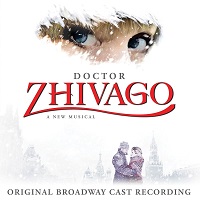 Original Broadway Cast, 2011 (Broadway Records)
Original Broadway Cast, 2011 (Broadway Records)  (2 / 5) This recording reveals an uneven score for a musical with a rather complicated plot. The source material, Boris Pasternak’s 1957 novel of the same title, may be partially to blame; the story takes place during the Russian Revolution, and it surrounds protagonist Yuri Zhivago with numerous characters and a sprawling narrative. The short-lived Broadway production featured music by Lucy Simon, lyrics by Amy Powers and Michael Korie, and a book by Michael Weller. If one can listen beyond the muddled and unfocused opening number, “Two Worlds,” there are quite a few lovely songs in this score, primarily owing to Simon’s ability to craft beautiful duets; hear Zhivago (Tam Mutu) implore his wife (Lora Lee Gayer) to “Watch the Moon,” or listen to “Love Finds You,” a quintet that attempts to juggle all of the show’s prominent characters and their wandering hearts. There is charming vocal work done by Kelli Barrett, who’s given strong material as Zhivago’s lover, Lara, and Paul Alexander Nolan as Pasha Antipov/Strelnikov, who’s not so fortunate in that regard. The plot of Doctor Zhivago may be very difficult to follow, but when this recording reaches its climax with the conventional but effective duet “On the Edge of Time With You,” listeners may just be won over. — Forrest Hutchinson
(2 / 5) This recording reveals an uneven score for a musical with a rather complicated plot. The source material, Boris Pasternak’s 1957 novel of the same title, may be partially to blame; the story takes place during the Russian Revolution, and it surrounds protagonist Yuri Zhivago with numerous characters and a sprawling narrative. The short-lived Broadway production featured music by Lucy Simon, lyrics by Amy Powers and Michael Korie, and a book by Michael Weller. If one can listen beyond the muddled and unfocused opening number, “Two Worlds,” there are quite a few lovely songs in this score, primarily owing to Simon’s ability to craft beautiful duets; hear Zhivago (Tam Mutu) implore his wife (Lora Lee Gayer) to “Watch the Moon,” or listen to “Love Finds You,” a quintet that attempts to juggle all of the show’s prominent characters and their wandering hearts. There is charming vocal work done by Kelli Barrett, who’s given strong material as Zhivago’s lover, Lara, and Paul Alexander Nolan as Pasha Antipov/Strelnikov, who’s not so fortunate in that regard. The plot of Doctor Zhivago may be very difficult to follow, but when this recording reaches its climax with the conventional but effective duet “On the Edge of Time With You,” listeners may just be won over. — Forrest Hutchinson
Disaster!
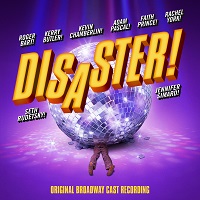 Original Broadway Cast, 2016 (Broadway Records)
Original Broadway Cast, 2016 (Broadway Records)  (4 / 5) As originally presented on the tiny stage of an intimate nightclub on the Upper West Side of Manhattan, Disaster! was a hilariously funny, spot-on spoof of both the epic disaster movies of the 1970s (The Poseidon Adventure, Earthquake, et al.) and the theatrical genre that has come to be known as “the jukebox musical,” in which pre-existing pop songs are shoved willy-nilly into a “plot” written around them. Sadly, the show had a very brief subsequent run on Broadway, where its intentionally bargain-basement production values were apparently not appreciated — this despite a cast that included such adept musical comedians as Roger Bart, Kerry Butler, Kevin Chamberlin, Faith Prince, Rachel York, and the brilliant Jennifer Simard in the scene-stealing role of a nun with a gambling addiction. But if that production couldn’t muster more than 104 performances in total, the cast album provides evidence that the show itself is a laugh riot and would likely be hugely popular with audiences if presented by community, regional, and summer theaters, high schools, and colleges. As set up in the opening number, “Hot Stuff,” the perfectly ridiculous story that Seth Rudetsky, Jack Plotnick, and Drew Geraci concocted to contain dozens of pop hits of the ’70s concerns a professor (Rudetsky) who attempts in vain to warn against an impending earthquake that threatens a floating casino/discotheque. Heard during the course of the loopy proceedings are such deathless songs as “Theme from Mahagony,” “Saturday Night,” “I Am Woman/That’s the Way I’ve Heard it Should Be,” “Never Can Say Goodbye,” “Feelings,” “Three Times a Lady,” “Don’t Cry Out Loud,” and about 20 others — but, cannily, almost none of these are performed complete. Rather, they stick around just long enough to make their comic and nostalgic points, then disappear back into the musical ether. If we can all agree that the highlight of the album is Simard’s magnificently toneless rendition of “The Lord’s Prayer” (remember that one?!), there are many other musically and/or comically excellent tracks here, featuring the personnel named above as well as such other worthies as Adam Pascal, Max Crumm, Manoel Felciano, Lacretta Nicole, Paul Castree, and the budding young talent Baylee Littrell in the dual role of 11-year-old twins Ben and Lisa. Throughout, the sounds of the ’70s are expertly aped by orchestrators/arrangers Joseph Joubert and Seth Rudetsky (wearing yet another hat), vocal arranger Michael McElroy, and dance arranger David Dabbon, all under the crack musical direction of Steve Marzullo. Party on! — Michael Portantiere
(4 / 5) As originally presented on the tiny stage of an intimate nightclub on the Upper West Side of Manhattan, Disaster! was a hilariously funny, spot-on spoof of both the epic disaster movies of the 1970s (The Poseidon Adventure, Earthquake, et al.) and the theatrical genre that has come to be known as “the jukebox musical,” in which pre-existing pop songs are shoved willy-nilly into a “plot” written around them. Sadly, the show had a very brief subsequent run on Broadway, where its intentionally bargain-basement production values were apparently not appreciated — this despite a cast that included such adept musical comedians as Roger Bart, Kerry Butler, Kevin Chamberlin, Faith Prince, Rachel York, and the brilliant Jennifer Simard in the scene-stealing role of a nun with a gambling addiction. But if that production couldn’t muster more than 104 performances in total, the cast album provides evidence that the show itself is a laugh riot and would likely be hugely popular with audiences if presented by community, regional, and summer theaters, high schools, and colleges. As set up in the opening number, “Hot Stuff,” the perfectly ridiculous story that Seth Rudetsky, Jack Plotnick, and Drew Geraci concocted to contain dozens of pop hits of the ’70s concerns a professor (Rudetsky) who attempts in vain to warn against an impending earthquake that threatens a floating casino/discotheque. Heard during the course of the loopy proceedings are such deathless songs as “Theme from Mahagony,” “Saturday Night,” “I Am Woman/That’s the Way I’ve Heard it Should Be,” “Never Can Say Goodbye,” “Feelings,” “Three Times a Lady,” “Don’t Cry Out Loud,” and about 20 others — but, cannily, almost none of these are performed complete. Rather, they stick around just long enough to make their comic and nostalgic points, then disappear back into the musical ether. If we can all agree that the highlight of the album is Simard’s magnificently toneless rendition of “The Lord’s Prayer” (remember that one?!), there are many other musically and/or comically excellent tracks here, featuring the personnel named above as well as such other worthies as Adam Pascal, Max Crumm, Manoel Felciano, Lacretta Nicole, Paul Castree, and the budding young talent Baylee Littrell in the dual role of 11-year-old twins Ben and Lisa. Throughout, the sounds of the ’70s are expertly aped by orchestrators/arrangers Joseph Joubert and Seth Rudetsky (wearing yet another hat), vocal arranger Michael McElroy, and dance arranger David Dabbon, all under the crack musical direction of Steve Marzullo. Party on! — Michael Portantiere
First Daughter Suite
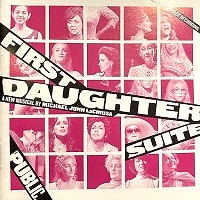 Original Off-Broadway Cast, 2016 (Ghostlight, 2CDs)
Original Off-Broadway Cast, 2016 (Ghostlight, 2CDs)  (4 / 5) One of the great joys of studying and reviewing musical theater cast recordings is tracking the growth and maturity of an artist. Composer-lyricist Michael John LaChuisa has been writing scores for the theater since the 1990s, and his work has continued to develop and expand both musically and dramatically. His score for First Daughter Suite is a high-water mark in both regards. Whereas LaChiusa’s earlier works contained snatches of truncated melodies, this score is full of well-crafted, extended musical sequences. A sort of sequel to of his previous musical First Lady Suite, this one portrays the daughters and wives of American Presidents from both political parties in four separate vignettes. The Nixons, Fords, Carters, Reagans, and Bushes are all present, played by a luminous, uniformly excellent, all-female cast. Barbara Walsh portrays Pat Nixon, Alison Fraser doubles as Betty Ford and Nancy Reagan, and Mary Testa plays Barbara Bush, with Rachel Bay Jones and Caissie Levy doing fine character work in multiple roles. Testa, one of the theater’s most unique treasures, is particularly moving here. LaChiusa wrote his most probing and thought-provoking lyrics for her while searching for any crack in the armor of “Granite Granny” Barbara Bush; in describing the feeling of loss she experienced when her young daughter died of leukemia, Mrs. Bush sings the lyric “losing every atom of myself I thought I had” to heartbreaking effect. First Daughter Suite has been captured in its near entirety on this two-disc recording, which even includes a 22-minute track primarily consisting of dialogue between Alison Fraser’s Nancy Reagan and her estranged daughter, Patti Davis (Levy). Each scene represents not only the personal lives of these people but also marks the progression of America’s views on women during the latter part of the 20th century. If one finds LaChiusa’s early works difficult to enjoy, this score is a perfect opportunity to revisit his music and see how his style has evolved. — Forrest Hutchinson
(4 / 5) One of the great joys of studying and reviewing musical theater cast recordings is tracking the growth and maturity of an artist. Composer-lyricist Michael John LaChuisa has been writing scores for the theater since the 1990s, and his work has continued to develop and expand both musically and dramatically. His score for First Daughter Suite is a high-water mark in both regards. Whereas LaChiusa’s earlier works contained snatches of truncated melodies, this score is full of well-crafted, extended musical sequences. A sort of sequel to of his previous musical First Lady Suite, this one portrays the daughters and wives of American Presidents from both political parties in four separate vignettes. The Nixons, Fords, Carters, Reagans, and Bushes are all present, played by a luminous, uniformly excellent, all-female cast. Barbara Walsh portrays Pat Nixon, Alison Fraser doubles as Betty Ford and Nancy Reagan, and Mary Testa plays Barbara Bush, with Rachel Bay Jones and Caissie Levy doing fine character work in multiple roles. Testa, one of the theater’s most unique treasures, is particularly moving here. LaChiusa wrote his most probing and thought-provoking lyrics for her while searching for any crack in the armor of “Granite Granny” Barbara Bush; in describing the feeling of loss she experienced when her young daughter died of leukemia, Mrs. Bush sings the lyric “losing every atom of myself I thought I had” to heartbreaking effect. First Daughter Suite has been captured in its near entirety on this two-disc recording, which even includes a 22-minute track primarily consisting of dialogue between Alison Fraser’s Nancy Reagan and her estranged daughter, Patti Davis (Levy). Each scene represents not only the personal lives of these people but also marks the progression of America’s views on women during the latter part of the 20th century. If one finds LaChiusa’s early works difficult to enjoy, this score is a perfect opportunity to revisit his music and see how his style has evolved. — Forrest Hutchinson
Fermat’s Last Tango
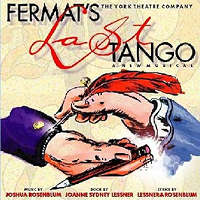 Original Off-Broadway Cast, 2002 (Original Cast Records)
Original Off-Broadway Cast, 2002 (Original Cast Records)  (3 / 5) A musical about a math problem? It’s a crazy notion, but composer-lyricist Joshua Rosenblum and librettist-lyricist Joanne Sydney Lessner make it work. Their show was inspired by the controversial last theorem of French mathematician Pierre de Fermat, which has the mythical qualities needed to support a dramatic framework. Fermat’s Last Tango is a bizarre, surprisingly effective, mostly true musical detective story. The creators changes few of the real-life facts beyond renaming the central figure Daniel Keane. Femat himself appears, taunting and yet assisting Keane throughout the show; if the device seems a bit silly at first, it works because of the epic scope of the musical. (Euclid, Newton, Pythagoras, and other mathematicians also appear.) The score is often operatic in weight, and the talented cast is more than up to the challenge. Chris Thompson displays a booming baritone as Keane, Jonathan Rabb’s pompous Fermat is lots of fun, and the members of the ensemble (Christianne Tisdale, Carrie Wilshusen, Gilles Chiasson, and Mitchell Kantor) are excellent. Perhaps the best performance on the cast album comes from Edwardyne Cowan, who plays Keane’s wife. With her beautiful voice, Cowan puts over the show’s one concession to traditional musical comedy, a terrific number titled “Math Widow.” But there are several other enjoyable songs here. Although Fermat’s Last Tango is not recommended as light background music, it’s definitely worth a listen or two. — Matthew Murray
(3 / 5) A musical about a math problem? It’s a crazy notion, but composer-lyricist Joshua Rosenblum and librettist-lyricist Joanne Sydney Lessner make it work. Their show was inspired by the controversial last theorem of French mathematician Pierre de Fermat, which has the mythical qualities needed to support a dramatic framework. Fermat’s Last Tango is a bizarre, surprisingly effective, mostly true musical detective story. The creators changes few of the real-life facts beyond renaming the central figure Daniel Keane. Femat himself appears, taunting and yet assisting Keane throughout the show; if the device seems a bit silly at first, it works because of the epic scope of the musical. (Euclid, Newton, Pythagoras, and other mathematicians also appear.) The score is often operatic in weight, and the talented cast is more than up to the challenge. Chris Thompson displays a booming baritone as Keane, Jonathan Rabb’s pompous Fermat is lots of fun, and the members of the ensemble (Christianne Tisdale, Carrie Wilshusen, Gilles Chiasson, and Mitchell Kantor) are excellent. Perhaps the best performance on the cast album comes from Edwardyne Cowan, who plays Keane’s wife. With her beautiful voice, Cowan puts over the show’s one concession to traditional musical comedy, a terrific number titled “Math Widow.” But there are several other enjoyable songs here. Although Fermat’s Last Tango is not recommended as light background music, it’s definitely worth a listen or two. — Matthew Murray
Days of Wine and Roses
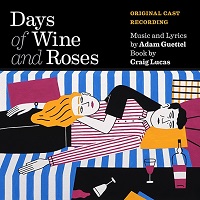 Original Cast, 2023 (Nonesuch)
Original Cast, 2023 (Nonesuch)  (5 / 5) Days of Wine and Roses marks the first musical with a score by composer/lyricist Adam Guettel that has been produced since Guettel’s triumph with The Light in the Piazza in 2005, and it was well worth the wait. Recorded in advance of the show’s Broadway premiere but after its initial production at the Atlantic Theater Company, this cast album is a beautiful gut punch. The music is different from any Broadway score of recent memory — full of earworms without being simple, and harmonically fascinating while remaining deliciously tonal. The orchestrations, which delight the ear, were also provided by Guettel. With a book by Craig Lucas, Days of Wine and Roses is based on the film of the same title. Brian d’Arcy James and Kelli O’Hara star as the show’s central couple, Kirsten Arnesen and Joe Clay, who meet on a boat (the album begins with the sound of rushing waves) and end up embarking on a devastating descent into alcoholism, each pulling the other further down. “Evanesce,” the song that the couple sings when they start drinking together, is a jazzy delight, complicated by ominous lyrics that predict their future (“Two dolphins breaking away / Two dolphins right to the grave/ Are we”). With the exception of the sweet-voiced Ella Dane Morgan as the couple’s young daughter, Lila, hardly any other performers are heard on the album; but James and O’Hara sing so well, and their voices blend so beautifully, that listeners won’t mind at all. O’Hara’s soprano has only become more colorful and expansive since she starred in Piazza, and “There Go I,” a beautiful ballad with evocative lyrics, serves as a showcase for her wondrous talent. “As The Water Loves The Stone” is one of the most heartfelt love songs this reviewer has ever heard, while the couple’s individual “mad scene” songs, “435” and “Morton Salt Girl,” would serve as playgrounds for any actor. The overall tone of the score is very sad, and many listeners may find themselves becoming emotional. It’s hard not to cry during “Turlycue,” the plaintive duet between a suffering mother and a confused daughter, and the joyfulness of “First Breath” becomes quite moving due to the direction of the plot. No musical theater maven should be without this recording; whether it haunts you, inspires you, or even triggers you, it’s certain to have a profound effect. — Charles Kirsch
(5 / 5) Days of Wine and Roses marks the first musical with a score by composer/lyricist Adam Guettel that has been produced since Guettel’s triumph with The Light in the Piazza in 2005, and it was well worth the wait. Recorded in advance of the show’s Broadway premiere but after its initial production at the Atlantic Theater Company, this cast album is a beautiful gut punch. The music is different from any Broadway score of recent memory — full of earworms without being simple, and harmonically fascinating while remaining deliciously tonal. The orchestrations, which delight the ear, were also provided by Guettel. With a book by Craig Lucas, Days of Wine and Roses is based on the film of the same title. Brian d’Arcy James and Kelli O’Hara star as the show’s central couple, Kirsten Arnesen and Joe Clay, who meet on a boat (the album begins with the sound of rushing waves) and end up embarking on a devastating descent into alcoholism, each pulling the other further down. “Evanesce,” the song that the couple sings when they start drinking together, is a jazzy delight, complicated by ominous lyrics that predict their future (“Two dolphins breaking away / Two dolphins right to the grave/ Are we”). With the exception of the sweet-voiced Ella Dane Morgan as the couple’s young daughter, Lila, hardly any other performers are heard on the album; but James and O’Hara sing so well, and their voices blend so beautifully, that listeners won’t mind at all. O’Hara’s soprano has only become more colorful and expansive since she starred in Piazza, and “There Go I,” a beautiful ballad with evocative lyrics, serves as a showcase for her wondrous talent. “As The Water Loves The Stone” is one of the most heartfelt love songs this reviewer has ever heard, while the couple’s individual “mad scene” songs, “435” and “Morton Salt Girl,” would serve as playgrounds for any actor. The overall tone of the score is very sad, and many listeners may find themselves becoming emotional. It’s hard not to cry during “Turlycue,” the plaintive duet between a suffering mother and a confused daughter, and the joyfulness of “First Breath” becomes quite moving due to the direction of the plot. No musical theater maven should be without this recording; whether it haunts you, inspires you, or even triggers you, it’s certain to have a profound effect. — Charles Kirsch
Evening Primrose
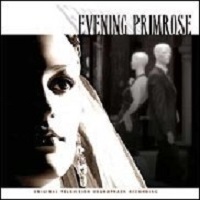 Television Cast, 1966 (Kritzerland)
Television Cast, 1966 (Kritzerland)  (3 / 5) Stephen Sondheim provided a brief but compelling score for this TV musical with a teleplay by James Goldman, based on a short story by John Collier. It tells the odd tale of a struggling poet named Charles, who decides to retreat from society by remaining in a Manhattan department store after closing time; he apparently intends to remain there alone indefinitely, retreating to the store’s nether regions during business hours, but soon he comes upon a small group of people who have decided to do the same thing. Charles falls in love with Ella, a young woman who has lived in the store since early childhood and barely remembers the outside world. In the telecast, Charles was played by Anthony Perkins, Ella by Charmian Carr. No cast album was released until 2008, when Krizerland transferred the soundtrack recordings of the songs to CD. Since it was never a stage musical and is unlikely ever to be one, Evening Primrose doesn’t warrant a lengthy review here, but it must be said that the four-song score contains two of the best ballads Sondheim ever wrote: Ella’s touching reminiscence “I Remember,” and the gorgeous duet “Take Me to the World.” Perkins, who had not very successfully tried his hand as a musical theater leading man in the 1960 Broadway show Greenwillow, is well cast and persuasive as Charles, while Carr, best known for her performance as Liesl in the mega-hit film version of The Sound of Music, is a plaintive Ella. The mid-’60s monaural sound quality of the recording is not great but acceptable. [Note: The full, 52-minute telecast is available separately on home video.] — Michael Portantiere
(3 / 5) Stephen Sondheim provided a brief but compelling score for this TV musical with a teleplay by James Goldman, based on a short story by John Collier. It tells the odd tale of a struggling poet named Charles, who decides to retreat from society by remaining in a Manhattan department store after closing time; he apparently intends to remain there alone indefinitely, retreating to the store’s nether regions during business hours, but soon he comes upon a small group of people who have decided to do the same thing. Charles falls in love with Ella, a young woman who has lived in the store since early childhood and barely remembers the outside world. In the telecast, Charles was played by Anthony Perkins, Ella by Charmian Carr. No cast album was released until 2008, when Krizerland transferred the soundtrack recordings of the songs to CD. Since it was never a stage musical and is unlikely ever to be one, Evening Primrose doesn’t warrant a lengthy review here, but it must be said that the four-song score contains two of the best ballads Sondheim ever wrote: Ella’s touching reminiscence “I Remember,” and the gorgeous duet “Take Me to the World.” Perkins, who had not very successfully tried his hand as a musical theater leading man in the 1960 Broadway show Greenwillow, is well cast and persuasive as Charles, while Carr, best known for her performance as Liesl in the mega-hit film version of The Sound of Music, is a plaintive Ella. The mid-’60s monaural sound quality of the recording is not great but acceptable. [Note: The full, 52-minute telecast is available separately on home video.] — Michael Portantiere
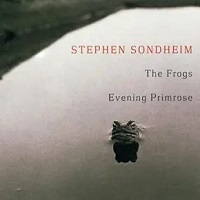 Studio Cast, 2001 (Nonesuch)
Studio Cast, 2001 (Nonesuch)  (4 / 5) The first part of this essential album contains the first commercial recordings of the songs that Sondheim wrote for The Frogs (see separate review, under that title). The second part is devoted to his even-briefer score for Evening Primrose, the 1966 TV musical that concerns the drop-out poet Charles’s encounter with, as Frank Rich phrases it in his notes for this recording, “a mysterious nocturnal society of eccentric shut-ins as well as the muse he’s been searching for, a sort of modern Rapunzel named Ella.” Here, Charles and Ella are sung by Neil Patrick Harris and Theresa McCarthy. Both do fine jobs of delivering the highlights of this mini-musical that are mentioned in the review above, as well as the score’s only other two numbers: Charles’s character-establishing “If You Can Find Me, I’m Here” and the extended duet “When?” All of the songs benefit greatly from Jonathan Tunick’s typically superb orchestrations as played by the American Theatre Orchestra under the baton of Sondheim specialist Paul Gemignani. The CD boasts Nonesuch’s usual, first-rate recorded sound: powerful but not harsh, ambient but not overly reverberant, with great dynamic range. — M.P.
(4 / 5) The first part of this essential album contains the first commercial recordings of the songs that Sondheim wrote for The Frogs (see separate review, under that title). The second part is devoted to his even-briefer score for Evening Primrose, the 1966 TV musical that concerns the drop-out poet Charles’s encounter with, as Frank Rich phrases it in his notes for this recording, “a mysterious nocturnal society of eccentric shut-ins as well as the muse he’s been searching for, a sort of modern Rapunzel named Ella.” Here, Charles and Ella are sung by Neil Patrick Harris and Theresa McCarthy. Both do fine jobs of delivering the highlights of this mini-musical that are mentioned in the review above, as well as the score’s only other two numbers: Charles’s character-establishing “If You Can Find Me, I’m Here” and the extended duet “When?” All of the songs benefit greatly from Jonathan Tunick’s typically superb orchestrations as played by the American Theatre Orchestra under the baton of Sondheim specialist Paul Gemignani. The CD boasts Nonesuch’s usual, first-rate recorded sound: powerful but not harsh, ambient but not overly reverberant, with great dynamic range. — M.P.
Dessa Rose
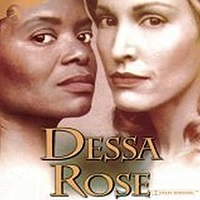 Original Off-Broadway Cast, 2005 (JAY)
Original Off-Broadway Cast, 2005 (JAY)  (4 / 5) Based on Sherley Anne Williams’ 1986 novel about the intertwined stories and gradual friendship of a Black woman and a white woman in the Antebellum South, Dessa Rose remains Lynn Ahrens and Stephen Flaherty’s most sweeping, ambitious score since Ragtime. It also makes for an epic cast album with a whopping 68 tracks and over two hours of material, including all dialogue (also by Ahrens) and all the necessary sound effects to convey the show’s dramatic events. Since Dessa Rose is heavily narrated by the title character (LaChanze) and Ruth (Rachel York), reminiscing in their old age, it’s easy to follow the plot from the recording once the two women meet and the show shakes loose its early flashback-within-a-flashback knottiness. As Dessa Rose, an enslaved woman willing to do anything to fight for her freedom, LaChanze, an early Ahrens and Flaherty muse (as in Once On This Island, a score that’s occasionally referenced here in some livelier ensemble moments), offers a gripping performance, especially in her Act One solos, “Something Of My Own” and “Twelve Children.” York is a terrific counterbalance as a prim Southern belle who opens her home and her heart to Dessa Rose and her companions fleeing slavery. Norm Lewis also gives a warmly winning performance as Nathan, who falls for Ruth, and Kecia Lewis sings the ballad “White Milk, Red Blood” movingly. Though the first act is rather exposition-heavy, and the longer soliloquies interrupt the album’s often-propulsive momentum, the show takes off in the second act once the two women turn against each other in a fiery pair of numbers, “Better If I Died” and “Just Over the Line.” It’s occasionally obvious that Dessa Rose shares its composer with Ragtime, but Flaherty ultimately carves out a tensely operatic sound for the score that stands alone among his works, powered by banjo-rich orchestrations courtesy of William David Brohn and Christopher Jahnke. (The rousing vocal arrangements are by Flaherty himself.) With its audio play expansiveness, the Dessa Rose cast recording makes for a compelling, powerful listen. — Dan Rubins
(4 / 5) Based on Sherley Anne Williams’ 1986 novel about the intertwined stories and gradual friendship of a Black woman and a white woman in the Antebellum South, Dessa Rose remains Lynn Ahrens and Stephen Flaherty’s most sweeping, ambitious score since Ragtime. It also makes for an epic cast album with a whopping 68 tracks and over two hours of material, including all dialogue (also by Ahrens) and all the necessary sound effects to convey the show’s dramatic events. Since Dessa Rose is heavily narrated by the title character (LaChanze) and Ruth (Rachel York), reminiscing in their old age, it’s easy to follow the plot from the recording once the two women meet and the show shakes loose its early flashback-within-a-flashback knottiness. As Dessa Rose, an enslaved woman willing to do anything to fight for her freedom, LaChanze, an early Ahrens and Flaherty muse (as in Once On This Island, a score that’s occasionally referenced here in some livelier ensemble moments), offers a gripping performance, especially in her Act One solos, “Something Of My Own” and “Twelve Children.” York is a terrific counterbalance as a prim Southern belle who opens her home and her heart to Dessa Rose and her companions fleeing slavery. Norm Lewis also gives a warmly winning performance as Nathan, who falls for Ruth, and Kecia Lewis sings the ballad “White Milk, Red Blood” movingly. Though the first act is rather exposition-heavy, and the longer soliloquies interrupt the album’s often-propulsive momentum, the show takes off in the second act once the two women turn against each other in a fiery pair of numbers, “Better If I Died” and “Just Over the Line.” It’s occasionally obvious that Dessa Rose shares its composer with Ragtime, but Flaherty ultimately carves out a tensely operatic sound for the score that stands alone among his works, powered by banjo-rich orchestrations courtesy of William David Brohn and Christopher Jahnke. (The rousing vocal arrangements are by Flaherty himself.) With its audio play expansiveness, the Dessa Rose cast recording makes for a compelling, powerful listen. — Dan Rubins
Flying Over Sunset
 Original Broadway Cast, 2022 (Masterworks Broadway)
Original Broadway Cast, 2022 (Masterworks Broadway)  (2 / 5) One thing that can be said for Flying Over Sunset is that it’s certainly ambitious. Conceived and directed by James Lapine, the musical tells of a fictional meeting between movie star Cary Grant (Tony Yazbeck), novelist/philosopher Aldous Huxley (Henry Hadden-Paton), and playwright/politician Clare Boothe Luce (Carmen Cusack), during which the three experiment with the psychological benefits and detriments of LSD — something all three did in real life, but separately. In an effort to theatricalize the effects of the drug and its ability to remove its revelers from reality, all of the songs in this show occur during the characters’ hallucinations. While this allows composer Tom Kitt to create lush compositions, elegantly orchestrated by Michael Starobin, the score only succeeds intermittently. As was the case with her turn in Bright Star, Cusack is once again here given the best material, and she elevates it with her vocal luster and nuanced acting. The ultimate highlight of the recording is the title number, sung during Luce’s first LSD trip as she hallucinates and harmonizes with her deceased mother and daughter. Other elements of the score, however, are just odd. Songs like “Rocket Ship” and “Three Englishmen,” though well performed by Yazbeck, Hadden-Paton, and Robert Sella (as the group’s LSD guru), may prompt one to question whether some of the content of this show is intended to be camp. Listening to Flying Over Sunset, musical theater fans will learn, along with the show’s trio, that for every beautiful high there’s usually a disorienting low. — Matt Koplik
(2 / 5) One thing that can be said for Flying Over Sunset is that it’s certainly ambitious. Conceived and directed by James Lapine, the musical tells of a fictional meeting between movie star Cary Grant (Tony Yazbeck), novelist/philosopher Aldous Huxley (Henry Hadden-Paton), and playwright/politician Clare Boothe Luce (Carmen Cusack), during which the three experiment with the psychological benefits and detriments of LSD — something all three did in real life, but separately. In an effort to theatricalize the effects of the drug and its ability to remove its revelers from reality, all of the songs in this show occur during the characters’ hallucinations. While this allows composer Tom Kitt to create lush compositions, elegantly orchestrated by Michael Starobin, the score only succeeds intermittently. As was the case with her turn in Bright Star, Cusack is once again here given the best material, and she elevates it with her vocal luster and nuanced acting. The ultimate highlight of the recording is the title number, sung during Luce’s first LSD trip as she hallucinates and harmonizes with her deceased mother and daughter. Other elements of the score, however, are just odd. Songs like “Rocket Ship” and “Three Englishmen,” though well performed by Yazbeck, Hadden-Paton, and Robert Sella (as the group’s LSD guru), may prompt one to question whether some of the content of this show is intended to be camp. Listening to Flying Over Sunset, musical theater fans will learn, along with the show’s trio, that for every beautiful high there’s usually a disorienting low. — Matt Koplik
Emojiland
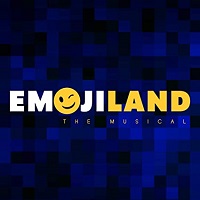 Original Off-Broadway Cast, 2020 (Broadway Records)
Original Off-Broadway Cast, 2020 (Broadway Records)  (2 / 5) This recording represents the Off-Broadway production of Emojiland, a knowingly campy musical that proudly planted its digital freak flag on the theatrical landscape. In an era when even many Off-Broadway ventures are crafted for mainstream appeal, usually in the hope of receiving a transfer to Broadway, it’s somewhat refreshing to listen to this cast album of a show that has no objective other than to entertain through humor and absurdity. How successful it is at doing so is another matter. Written by Laura Schein and Keith Harrison, the musical takes its title from the ideograms that have become so popular in the age of communication through digital devices. The story explores a world populated by these emojis — including such favorites as Kissy Face and Pile of Poo — as they grapple with the disruption of their society that has resulted from the latest software update. Though the show’s plot touches on major themes like xenophobia and prejudice, Emojiland has no intention of being any meatier than a bag of gummy bears. Schein and Harrison’s upbeat score appropriately leans towards techno-pop, and if their lyrics aren’t laugh-out-loud funny, they’re contentedly witty and keep the fun going. Emojiland also benefits from a cast that appears game for the ridiculousness of the piece, led by Schein herself as ingénue Smize. Lesli Margherita and Josh Lamon, in particular, give ingenious comedic turns as the emojis Princeess and Prince, respectively. Like any sugar rush, the show starts to wear itself out rather quickly, and once Lamon and Margherita finish letting loose with the Act 2 opener “Firewall Ball,” the album becomes something of a chore to finish. But even if it doesn’t stay with you for long, Emojiland offers lots of fun in the moment. — Matt Koplik
(2 / 5) This recording represents the Off-Broadway production of Emojiland, a knowingly campy musical that proudly planted its digital freak flag on the theatrical landscape. In an era when even many Off-Broadway ventures are crafted for mainstream appeal, usually in the hope of receiving a transfer to Broadway, it’s somewhat refreshing to listen to this cast album of a show that has no objective other than to entertain through humor and absurdity. How successful it is at doing so is another matter. Written by Laura Schein and Keith Harrison, the musical takes its title from the ideograms that have become so popular in the age of communication through digital devices. The story explores a world populated by these emojis — including such favorites as Kissy Face and Pile of Poo — as they grapple with the disruption of their society that has resulted from the latest software update. Though the show’s plot touches on major themes like xenophobia and prejudice, Emojiland has no intention of being any meatier than a bag of gummy bears. Schein and Harrison’s upbeat score appropriately leans towards techno-pop, and if their lyrics aren’t laugh-out-loud funny, they’re contentedly witty and keep the fun going. Emojiland also benefits from a cast that appears game for the ridiculousness of the piece, led by Schein herself as ingénue Smize. Lesli Margherita and Josh Lamon, in particular, give ingenious comedic turns as the emojis Princeess and Prince, respectively. Like any sugar rush, the show starts to wear itself out rather quickly, and once Lamon and Margherita finish letting loose with the Act 2 opener “Firewall Ball,” the album becomes something of a chore to finish. But even if it doesn’t stay with you for long, Emojiland offers lots of fun in the moment. — Matt Koplik
Frozen
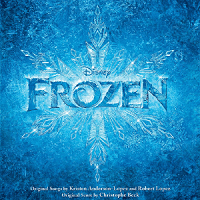 Film Soundtrack, 2013 (Walt Disney Records)
Film Soundtrack, 2013 (Walt Disney Records)  (4 / 5) One of the most popular titles in Disney’s history, Frozen revolves around two royal sisters: Elsa, who has the power to conjure snow and ice but is unable to control it, and Anna, who possesses no magical powers but is adventurous and desirous to be in love. By the end, they realize that the love they have for each other is strong enough to help Elsa control her powers, and is just as meaningful as any romantic relationship. A massive and enduring success, Frozen has received constant exposure in pop culture and media, leading many to become exhausted by the film, but first time listeners to this soundtrack will likely understand why it has continued to capture audiences. The songs, written by the married team of Kristin Anderson-Lopez and Robert Lopez (with incidental and choral scoring by Christophe Beck), are an intelligent blend of traditional musical theater and modern day pop, making the score feel both classic and current. (Doug Besterman provides lush and creative orchestrations.) The lyrics are often playful and cute while still offering strong character insight. “In Summer,” in particular, has a wittily morbid edge to it as sung by Olaf, a clueless snowman (Josh Gad) who wants nothing more than to experience warm weather, not realizing how it will effect his snow-based body. Frozen also benefits from having the strongest vocal cast for a Disney film since Beauty and the Beast, employing almost exclusively Broadway talent. In addition to Gad, we have Idina Menzel as Elsa, Kristin Bell as Anna, and Santino Fontana bringing credible Prince-ly charm to Hans. Bell gets quite a few songs to showcase her pure, classic-Disney-Princess soprano (she and Fontana work particularly well together on “Love is an Open Door”), but it’s Menzel who does the vocal heavy lifting, as in the soundtrack’s phenomenal breakout hit, “Let It Go.” Though it has been overplayed to the point of its becoming a pop culture punchline, at its core the song is well-structured and catchy, belted out by Menzel with great relish. In the movie and on this soundtrack album, only Jonathan Groff is musically wasted as Kristoff, a romantic foil for Anna, his singing limited to the thankfully short “Reindeers are Better Than People.” Otherwise, Frozen is a delight. — Matt Koplik
(4 / 5) One of the most popular titles in Disney’s history, Frozen revolves around two royal sisters: Elsa, who has the power to conjure snow and ice but is unable to control it, and Anna, who possesses no magical powers but is adventurous and desirous to be in love. By the end, they realize that the love they have for each other is strong enough to help Elsa control her powers, and is just as meaningful as any romantic relationship. A massive and enduring success, Frozen has received constant exposure in pop culture and media, leading many to become exhausted by the film, but first time listeners to this soundtrack will likely understand why it has continued to capture audiences. The songs, written by the married team of Kristin Anderson-Lopez and Robert Lopez (with incidental and choral scoring by Christophe Beck), are an intelligent blend of traditional musical theater and modern day pop, making the score feel both classic and current. (Doug Besterman provides lush and creative orchestrations.) The lyrics are often playful and cute while still offering strong character insight. “In Summer,” in particular, has a wittily morbid edge to it as sung by Olaf, a clueless snowman (Josh Gad) who wants nothing more than to experience warm weather, not realizing how it will effect his snow-based body. Frozen also benefits from having the strongest vocal cast for a Disney film since Beauty and the Beast, employing almost exclusively Broadway talent. In addition to Gad, we have Idina Menzel as Elsa, Kristin Bell as Anna, and Santino Fontana bringing credible Prince-ly charm to Hans. Bell gets quite a few songs to showcase her pure, classic-Disney-Princess soprano (she and Fontana work particularly well together on “Love is an Open Door”), but it’s Menzel who does the vocal heavy lifting, as in the soundtrack’s phenomenal breakout hit, “Let It Go.” Though it has been overplayed to the point of its becoming a pop culture punchline, at its core the song is well-structured and catchy, belted out by Menzel with great relish. In the movie and on this soundtrack album, only Jonathan Groff is musically wasted as Kristoff, a romantic foil for Anna, his singing limited to the thankfully short “Reindeers are Better Than People.” Otherwise, Frozen is a delight. — Matt Koplik
 Original Broadway Cast, 2018 (Walt Disney Records)
Original Broadway Cast, 2018 (Walt Disney Records)  (3 / 5) In the continuing line of movies translated to the stage, Disney has had an erratic track record, ranging from great success (The Lion King) to major disappointments (The Little Mermaid, Tarzan). The Broadway adaptation of Frozen, which this recording represents, lies somewhere in the middle. On the plus side, the show tries to dig deeper into its source material than most other Disney stage musicals, but the results are often middling. Kristin Anderson-Lopez and Robert Lopez have been brought back to expand their score from the film, and Dave Metzger’s orchestrations pretty much follow Doug Besterman’s blueprints. But while new songs like “Dangerous to Dream,” “Hans of the Southern Isles,” and “True Love” are commendable in their intentions to give the characters complexity, they really can’t be described as anything more than serviceably listenable. Of all the additions, the song that comes closest to standing out is “Monster,” a second-act number for Elsa — but, musically, even that feels more like a lesser “Let it Go” than a fully developed new piece. While the principal players may not be able to separate themselves completely from the original movie cast, they are all strong singers and inject plenty of personality into their performances. As the two sisters, Caissie Levy (Elsa) and Patti Murin (Anna) work particularly hard not to present cartoonish interpretations while skillfully navigating the demands of the score. The recording is also well worth a listen for Stephen Oremus’s stunning vocal arrangements, which give the pre-existing songs from the film a shot of Broadway adrenaline and provide the show’s ensemble with rich choral material (“Vuelie” and “Queen Anointed” are particularly haunting). If this recording isn’t good enough to replace Frozen’s original soundtrack, it’s worthy to stand alongside it — or a few steps behind, at least. — M.K.
(3 / 5) In the continuing line of movies translated to the stage, Disney has had an erratic track record, ranging from great success (The Lion King) to major disappointments (The Little Mermaid, Tarzan). The Broadway adaptation of Frozen, which this recording represents, lies somewhere in the middle. On the plus side, the show tries to dig deeper into its source material than most other Disney stage musicals, but the results are often middling. Kristin Anderson-Lopez and Robert Lopez have been brought back to expand their score from the film, and Dave Metzger’s orchestrations pretty much follow Doug Besterman’s blueprints. But while new songs like “Dangerous to Dream,” “Hans of the Southern Isles,” and “True Love” are commendable in their intentions to give the characters complexity, they really can’t be described as anything more than serviceably listenable. Of all the additions, the song that comes closest to standing out is “Monster,” a second-act number for Elsa — but, musically, even that feels more like a lesser “Let it Go” than a fully developed new piece. While the principal players may not be able to separate themselves completely from the original movie cast, they are all strong singers and inject plenty of personality into their performances. As the two sisters, Caissie Levy (Elsa) and Patti Murin (Anna) work particularly hard not to present cartoonish interpretations while skillfully navigating the demands of the score. The recording is also well worth a listen for Stephen Oremus’s stunning vocal arrangements, which give the pre-existing songs from the film a shot of Broadway adrenaline and provide the show’s ensemble with rich choral material (“Vuelie” and “Queen Anointed” are particularly haunting). If this recording isn’t good enough to replace Frozen’s original soundtrack, it’s worthy to stand alongside it — or a few steps behind, at least. — M.K.
Desperate Measures
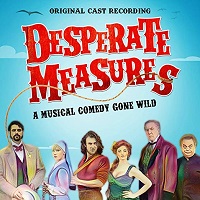 Original Off-Broadway Cast, 2018 (Masterworks Broadway)
Original Off-Broadway Cast, 2018 (Masterworks Broadway)  (3 / 5) People have adapted Shakespeare’s plays into musicals before, usually taking on the Bard’s hits. Librettist/lyricist Peter Kellogg and composer David Friedman chose one of the “problem plays,” Measure for Measure — a complicated stew of morality, corruption, and justice, with not much comedy in it. Kellogg and Friedman dropped their characters in Old West Arizona, and ramped up the sex (keeping the famous “bed trick”) and fun. The result, Desperate Measures, is a raucous, bawdy, old-fashioned musical comedy. The album can’t supply the sight gags, but the performers have great comedic chops, and they land every punch line in Kellogg’s lyrics. Friedman has called his score “Jewish country,” but it’s charmingly varied despite the dominant Western twang. “It Doesn’t Hurt To Try” is a hoedown with banjo and fiddle; “Someday They Will Thank Me” is a comic patter number for the villain, the sleazy governor (Nick Wyman, with a outrageous German accent); and the first act finale, “In the Dark,” is a complex choral piece set to a rhumba rhythm. The scene-setting opener, “The Ballad of Johnny Blood,” is an over-the-top homage to the themes of classic Western TV shows and films like Rawhide and The Good, The Bad, and the Ugly. Broadway influences are present, too, including small nods to Oklahoma! and a big one to Annie Get Your Gun with the best comic challenge duet since “Anything You Can Do”: In “Just For You,” Johnny (Conor Ryan) and saloon girl Bella (the uproarious Lauren Molina) argue over how far each would go in the name of love. (“I slept with another guy, just for you.” “Shot a man and watched him die, just for you.”) Molina also shines in her saloon striptease, “It’s Getting Hot In Here,” and in the duet “The Way That You Feel,” as novice nun Susanna (Emma Degerstedt, with a lovely soprano) instructs her how to be less risqué for the bed trick. Overall, this is a spirited score with heart. — Laura Frankos
(3 / 5) People have adapted Shakespeare’s plays into musicals before, usually taking on the Bard’s hits. Librettist/lyricist Peter Kellogg and composer David Friedman chose one of the “problem plays,” Measure for Measure — a complicated stew of morality, corruption, and justice, with not much comedy in it. Kellogg and Friedman dropped their characters in Old West Arizona, and ramped up the sex (keeping the famous “bed trick”) and fun. The result, Desperate Measures, is a raucous, bawdy, old-fashioned musical comedy. The album can’t supply the sight gags, but the performers have great comedic chops, and they land every punch line in Kellogg’s lyrics. Friedman has called his score “Jewish country,” but it’s charmingly varied despite the dominant Western twang. “It Doesn’t Hurt To Try” is a hoedown with banjo and fiddle; “Someday They Will Thank Me” is a comic patter number for the villain, the sleazy governor (Nick Wyman, with a outrageous German accent); and the first act finale, “In the Dark,” is a complex choral piece set to a rhumba rhythm. The scene-setting opener, “The Ballad of Johnny Blood,” is an over-the-top homage to the themes of classic Western TV shows and films like Rawhide and The Good, The Bad, and the Ugly. Broadway influences are present, too, including small nods to Oklahoma! and a big one to Annie Get Your Gun with the best comic challenge duet since “Anything You Can Do”: In “Just For You,” Johnny (Conor Ryan) and saloon girl Bella (the uproarious Lauren Molina) argue over how far each would go in the name of love. (“I slept with another guy, just for you.” “Shot a man and watched him die, just for you.”) Molina also shines in her saloon striptease, “It’s Getting Hot In Here,” and in the duet “The Way That You Feel,” as novice nun Susanna (Emma Degerstedt, with a lovely soprano) instructs her how to be less risqué for the bed trick. Overall, this is a spirited score with heart. — Laura Frankos
Dear Evan Hansen
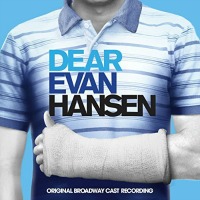 Original Broadway Cast, 2017 (Atlantic )
Original Broadway Cast, 2017 (Atlantic )  (4 / 5) A musical that unapologetically wears its heart on its sleeve, Dear Evan Hansen is the most high profile theater work to date from the songwriting team of Benj Pasek and Justin Paul. Set in a nondescript modern suburb, the show centers around a high school introvert with intense anxiety issues who finds himself involved in a misunderstanding which, partly due to the double-edged sword of social media and its galvanizing impact, snowballs into a giant lie that does both good and harm. Though the character of Evan is a little too broadly painted in his neuroses, and the show’s commentary on the effect of social media in modern culture doesn’t go quite as deep as it should, Pasek and Paul’s score is memorable and compelling, managing to wax poetic without being too on-the-nose in its imagery. Ben Platt, in the title role, does the majority of the vocal heavy lifting here, delivering a fully rounded and thrilling performance. It helps that he’s given the best songs in the score: the show’s biggest hit, “Waving Through a Window,” as well as the crushing “Words Fail” and the lovely if slightly heavy-handed “For Forever.” Platt is well supported by Rachel Bay Jones as Evan’s endearing, struggling, single mother; and Laura Dreyfuss, refreshingly understated as Zoe, the object of Evan’s affections, who may be harmed most by Evan’s lie. The cast album includes minimal dialogue, opting instead to present each song as a stand-alone item. While this doesn’t harm the flow of the recording, and has helped a few of the songs to break out as popular hits, two songs suffer from such treatment: “Good For You,” a cathartic release of Evan’s mom’s pent-up frustration, here plateaus in its anger, with no release; and the offbeat humor of “Sincerely Me” comes across as somewhat tasteless out of context. That said, the rest of the album works very well. Alex Lacamoire’s orchestrations (with additional work by Christopher Jahnke) are appropriately pop-oriented, and Justin Paul’s vocal arrangements never go overboard with vocal pyrotechnics. The restraint in their work separates DEH from many other contemporary scores, allowing the emotional weight of the piece to really resonate with the listener. And there are plenty of emotions here to resonate. — Matt Koplik
(4 / 5) A musical that unapologetically wears its heart on its sleeve, Dear Evan Hansen is the most high profile theater work to date from the songwriting team of Benj Pasek and Justin Paul. Set in a nondescript modern suburb, the show centers around a high school introvert with intense anxiety issues who finds himself involved in a misunderstanding which, partly due to the double-edged sword of social media and its galvanizing impact, snowballs into a giant lie that does both good and harm. Though the character of Evan is a little too broadly painted in his neuroses, and the show’s commentary on the effect of social media in modern culture doesn’t go quite as deep as it should, Pasek and Paul’s score is memorable and compelling, managing to wax poetic without being too on-the-nose in its imagery. Ben Platt, in the title role, does the majority of the vocal heavy lifting here, delivering a fully rounded and thrilling performance. It helps that he’s given the best songs in the score: the show’s biggest hit, “Waving Through a Window,” as well as the crushing “Words Fail” and the lovely if slightly heavy-handed “For Forever.” Platt is well supported by Rachel Bay Jones as Evan’s endearing, struggling, single mother; and Laura Dreyfuss, refreshingly understated as Zoe, the object of Evan’s affections, who may be harmed most by Evan’s lie. The cast album includes minimal dialogue, opting instead to present each song as a stand-alone item. While this doesn’t harm the flow of the recording, and has helped a few of the songs to break out as popular hits, two songs suffer from such treatment: “Good For You,” a cathartic release of Evan’s mom’s pent-up frustration, here plateaus in its anger, with no release; and the offbeat humor of “Sincerely Me” comes across as somewhat tasteless out of context. That said, the rest of the album works very well. Alex Lacamoire’s orchestrations (with additional work by Christopher Jahnke) are appropriately pop-oriented, and Justin Paul’s vocal arrangements never go overboard with vocal pyrotechnics. The restraint in their work separates DEH from many other contemporary scores, allowing the emotional weight of the piece to really resonate with the listener. And there are plenty of emotions here to resonate. — Matt Koplik
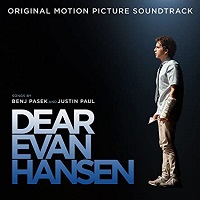 Motion Picture Soundtrack, 2021 (Interscope)
Motion Picture Soundtrack, 2021 (Interscope)  (3 / 5) While the Broadway stage production of Dear Evan Hansen received critical acclaim, the movie version was met largely with controversy and derision. Director Stephen Chbosky stated that the main reason the project went forward was to “preserve” Ben Platt’s performance as Evan, leading some to label the movie as nothing more than a vanity project. Listening to this soundtrack, one may feel that some artistic decisions were made to showcase Platt rather than to best adapt the musical for the motion picture medium. For example, several Benj Pasek-Justin Paul songs from the show that didn’t include Evan have been cut, and while few listeners will miss “To Break In A Glove,” the excision of other characters’ songs has sanded down the piece’s cynical edge, making the moral ambiguity of the plot and its view of Evan’s duplicity more unappealing. All of that said, the soundtrack is still a pleasant listening experience. No matter the consensus on Platt’s performance on screen, his singing voice is exceptional, and he has an even greater control of his instrument here than on the Broadway recording. The enlarged arrangements and orchestrations — typical of movie adaptations of stage musicals — are fun, if not as dramatically compelling as the restrained originals. The supporting cast is strong, though largely wasted, with not much material to showcase their talents. Kaitlyn Dever makes a particularly effective Zoe, and Julianne Moore shows a surprisingly sweet singing voice in “So Big/So Small,” even if it she sometimes sounds overly auto-tuned. Two new songs were added for the movie, the more notable of them being “The Anonymous Ones.” Given to the character Ilana, played by Amandla Stenberg, the song was co-written by Stenberg with Pasek and Paul, and it aims to provide more of an inner-life for a character who was mostly a plot device in the stage show. Compared to other songs that have been added to past movie versions of stage musicals, this one is more satisfying and well-rounded, even if it’s not quite up to the quality level of the rest of the score. — M.K.
(3 / 5) While the Broadway stage production of Dear Evan Hansen received critical acclaim, the movie version was met largely with controversy and derision. Director Stephen Chbosky stated that the main reason the project went forward was to “preserve” Ben Platt’s performance as Evan, leading some to label the movie as nothing more than a vanity project. Listening to this soundtrack, one may feel that some artistic decisions were made to showcase Platt rather than to best adapt the musical for the motion picture medium. For example, several Benj Pasek-Justin Paul songs from the show that didn’t include Evan have been cut, and while few listeners will miss “To Break In A Glove,” the excision of other characters’ songs has sanded down the piece’s cynical edge, making the moral ambiguity of the plot and its view of Evan’s duplicity more unappealing. All of that said, the soundtrack is still a pleasant listening experience. No matter the consensus on Platt’s performance on screen, his singing voice is exceptional, and he has an even greater control of his instrument here than on the Broadway recording. The enlarged arrangements and orchestrations — typical of movie adaptations of stage musicals — are fun, if not as dramatically compelling as the restrained originals. The supporting cast is strong, though largely wasted, with not much material to showcase their talents. Kaitlyn Dever makes a particularly effective Zoe, and Julianne Moore shows a surprisingly sweet singing voice in “So Big/So Small,” even if it she sometimes sounds overly auto-tuned. Two new songs were added for the movie, the more notable of them being “The Anonymous Ones.” Given to the character Ilana, played by Amandla Stenberg, the song was co-written by Stenberg with Pasek and Paul, and it aims to provide more of an inner-life for a character who was mostly a plot device in the stage show. Compared to other songs that have been added to past movie versions of stage musicals, this one is more satisfying and well-rounded, even if it’s not quite up to the quality level of the rest of the score. — M.K.
Dogfight
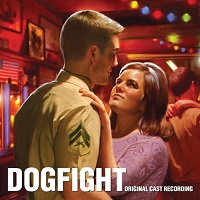 Original Off-Broadway Cast, 2013 (Ghostlight)
Original Off-Broadway Cast, 2013 (Ghostlight)  (3 / 5) Many musical scores can stand perfectly well as cast recordings, separate from their staged productions. Others lose something when deprived of the character and plot development revealed in the shows’ libretti. For all its virtues, Dogfight — songs by Benj Pasek and Justin Paul, book by Peter Duchan — falls within the latter group. Based on the 1991 film, it’s the story of some Marines tearing up San Francisco in late 1963, the night before they ship out to Vietnam. They plan a “dogfight,” a contest in which each jarhead contributes fifty bucks to a kitty that will be won by the guy who brings the ugliest date to the party. A nasty game, indeed — and the boys, including lead Eddie Birdlace (Derek Klena), appear as insensitive, hot-blooded louts. Fresh out of boot camp and convinced that they’re invincible, their pickup lines in the song “Hey, Good-Lookin'” are lies and braggadocio. Eddie finds a waitress, Rose (the sweet-voiced Lindsay Mendez), and pressures her to “Come to a Party” while privately exulting over his chances of winning the dogfight. Rose, for her part, is thrilled to be going out with a boy; in “Nothing Short of Wonderful,” she dithers over what to wear in staccato phrases, sounding like a mashup of Cinderella and the Baker’s Wife from Into The Woods. (The opening vamp of the title song also echoes that Sondheim show.) Clearly, this evening will not go well for Rose. But, sometime between the invitation and the party, Eddie has a change of heart that isn’t part of the score, although it’s described in the recording notes. The libretto shows us how Eddie grows to like Rose as they walk to the party, but none of that is in the score; on the album, he jumps from acting like a complete cad to trying unsuccessfully to take Rose home before the judging, in order to save her the embarrassment. Similarly, the recording doesn’t include Eddie’s later apology or indicate how the relationship progresses. Still, there’s much to appreciate here. Pasek and Paul know how to craft effective theater songs with nuance and layers. A few of the lyrics are a little too facile in telegraphing emotions or a sense of time and place, but most are very well written. The music ranges from early-sixties pop to Rose’s folk songs and powerful, revealing character numbers. “Come to a Party” works on multiple levels as variously sung by the callous Marines, the naive Rose, or Marcy, a knowing prostitute (played with sledgehammer bluntness by Annaleigh Ashford). The boys’ cockiness is evident as they take the town in “Some Kinda Time” and plan their big homecoming in “Hometown Hero’s Ticker Tape Parade.” Reality shatters their hopes, and Eddie’s devastating “Come Back” portrays what the war has done to him. But Rose is the real star here, and her journey comes through best in the score. She’s alternately shy and manic at first, then furious at the “Dogfight,” and soul-searching in “Pretty Funny.” The show’s emotional crux is found in her song “Before It’s Over,” when she realizes she has somehow benefited from the dreadful experience. As noted above, Eddie’s character growth isn’t charted as well in the songs, but this is still a solid score that tells a compelling story. — Laura Frankos
(3 / 5) Many musical scores can stand perfectly well as cast recordings, separate from their staged productions. Others lose something when deprived of the character and plot development revealed in the shows’ libretti. For all its virtues, Dogfight — songs by Benj Pasek and Justin Paul, book by Peter Duchan — falls within the latter group. Based on the 1991 film, it’s the story of some Marines tearing up San Francisco in late 1963, the night before they ship out to Vietnam. They plan a “dogfight,” a contest in which each jarhead contributes fifty bucks to a kitty that will be won by the guy who brings the ugliest date to the party. A nasty game, indeed — and the boys, including lead Eddie Birdlace (Derek Klena), appear as insensitive, hot-blooded louts. Fresh out of boot camp and convinced that they’re invincible, their pickup lines in the song “Hey, Good-Lookin'” are lies and braggadocio. Eddie finds a waitress, Rose (the sweet-voiced Lindsay Mendez), and pressures her to “Come to a Party” while privately exulting over his chances of winning the dogfight. Rose, for her part, is thrilled to be going out with a boy; in “Nothing Short of Wonderful,” she dithers over what to wear in staccato phrases, sounding like a mashup of Cinderella and the Baker’s Wife from Into The Woods. (The opening vamp of the title song also echoes that Sondheim show.) Clearly, this evening will not go well for Rose. But, sometime between the invitation and the party, Eddie has a change of heart that isn’t part of the score, although it’s described in the recording notes. The libretto shows us how Eddie grows to like Rose as they walk to the party, but none of that is in the score; on the album, he jumps from acting like a complete cad to trying unsuccessfully to take Rose home before the judging, in order to save her the embarrassment. Similarly, the recording doesn’t include Eddie’s later apology or indicate how the relationship progresses. Still, there’s much to appreciate here. Pasek and Paul know how to craft effective theater songs with nuance and layers. A few of the lyrics are a little too facile in telegraphing emotions or a sense of time and place, but most are very well written. The music ranges from early-sixties pop to Rose’s folk songs and powerful, revealing character numbers. “Come to a Party” works on multiple levels as variously sung by the callous Marines, the naive Rose, or Marcy, a knowing prostitute (played with sledgehammer bluntness by Annaleigh Ashford). The boys’ cockiness is evident as they take the town in “Some Kinda Time” and plan their big homecoming in “Hometown Hero’s Ticker Tape Parade.” Reality shatters their hopes, and Eddie’s devastating “Come Back” portrays what the war has done to him. But Rose is the real star here, and her journey comes through best in the score. She’s alternately shy and manic at first, then furious at the “Dogfight,” and soul-searching in “Pretty Funny.” The show’s emotional crux is found in her song “Before It’s Over,” when she realizes she has somehow benefited from the dreadful experience. As noted above, Eddie’s character growth isn’t charted as well in the songs, but this is still a solid score that tells a compelling story. — Laura Frankos
Death Takes a Holiday
 Original Off-Broadway Cast, 2011 (PS Classics)
Original Off-Broadway Cast, 2011 (PS Classics)  (2 / 5) On paper, Death Takes a Holiday probably looked like a wonderful idea for a musical. Composer-lyricist Maury Yeston has done some very admirable work, and audiences have long been intrigued with the story told here — based on a play by Alberto Casella that has received several adaptations, most famously as a 1934 film that starred Fredric March. So what went wrong? After the success of Titanic, Yeston and librettist Peter Stone chose to create an intimate musical inspired by Casella’s tale of a weekend during which Death puts aside his scythe and falls for a mortal girl. (Thomas Meehan joined the project after Stone’s death.) As it turned out, the plot was the first stumbling block for the adapters; the list of successful fantasy musicals is a short one, and the concept here is a whopper to swallow. Still, a strong opening number can get an audience to accept darn near anything — but Yeston disappoints with “In the Middle of Your Life/Nothing Happened.” Instead of being made to understand what it is about Grazia (Jill Paice) that causes Death (Kevin Earley) to stay his hand when she’s thrown from a car, we’re wincing at the bare exposition of the lyrics: “What is that darkness I see ahead?” “We’re going into a spin!” Also wince-inducing is the line, “Nothing can go wrong for her.” (Did they really sing that? Yup.) Nor do we buy it when Death, impersonating a Russian prince, tells Grazia’s father (Michael Siberry) of his desire for a vacation. Earley, who took over the role during preview performances when Julian Ovenden developed vocal problems, has a terrific voice, but its timbre isn’t well suited to the the Grim Reaper’s darker musical moments. He’s more effective in the lighter “Alive!” discovering the joys of breakfast, and in the romantic numbers with Paice, a solid Grazia. Oddly, the score’s best songs center on an unseen character: Grazia’s dead brother, Roberto. Major Fenton (Matt Cavenaugh) sees something in Prince Sirki’s eyes that eerily remind him of “Roberto’s Eyes” when his friend was shot down; and Rebecca Luker, as the mother, tells Sirki what death does to a family in the devastating “Losing Roberto.” The former conveys terror far better than characters intoning “Death is in the house!” and the latter lets Sirki truly know the pain he inflicts with each fatality, effectively leading to Earley’s heartfelt big number, “I Thought That I Could Live.” Would that the rest of the score matched the quality of these songs. Yeston’s melodies are lovely, with a nice Continental air (aside from a shimmy designed to get the cast dancing), but it’s hard to get past the often clunky lyrics. — Laura Frankos
(2 / 5) On paper, Death Takes a Holiday probably looked like a wonderful idea for a musical. Composer-lyricist Maury Yeston has done some very admirable work, and audiences have long been intrigued with the story told here — based on a play by Alberto Casella that has received several adaptations, most famously as a 1934 film that starred Fredric March. So what went wrong? After the success of Titanic, Yeston and librettist Peter Stone chose to create an intimate musical inspired by Casella’s tale of a weekend during which Death puts aside his scythe and falls for a mortal girl. (Thomas Meehan joined the project after Stone’s death.) As it turned out, the plot was the first stumbling block for the adapters; the list of successful fantasy musicals is a short one, and the concept here is a whopper to swallow. Still, a strong opening number can get an audience to accept darn near anything — but Yeston disappoints with “In the Middle of Your Life/Nothing Happened.” Instead of being made to understand what it is about Grazia (Jill Paice) that causes Death (Kevin Earley) to stay his hand when she’s thrown from a car, we’re wincing at the bare exposition of the lyrics: “What is that darkness I see ahead?” “We’re going into a spin!” Also wince-inducing is the line, “Nothing can go wrong for her.” (Did they really sing that? Yup.) Nor do we buy it when Death, impersonating a Russian prince, tells Grazia’s father (Michael Siberry) of his desire for a vacation. Earley, who took over the role during preview performances when Julian Ovenden developed vocal problems, has a terrific voice, but its timbre isn’t well suited to the the Grim Reaper’s darker musical moments. He’s more effective in the lighter “Alive!” discovering the joys of breakfast, and in the romantic numbers with Paice, a solid Grazia. Oddly, the score’s best songs center on an unseen character: Grazia’s dead brother, Roberto. Major Fenton (Matt Cavenaugh) sees something in Prince Sirki’s eyes that eerily remind him of “Roberto’s Eyes” when his friend was shot down; and Rebecca Luker, as the mother, tells Sirki what death does to a family in the devastating “Losing Roberto.” The former conveys terror far better than characters intoning “Death is in the house!” and the latter lets Sirki truly know the pain he inflicts with each fatality, effectively leading to Earley’s heartfelt big number, “I Thought That I Could Live.” Would that the rest of the score matched the quality of these songs. Yeston’s melodies are lovely, with a nice Continental air (aside from a shimmy designed to get the cast dancing), but it’s hard to get past the often clunky lyrics. — Laura Frankos
Dirty Rotten Scoundrels
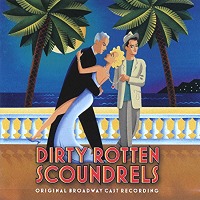 Original Broadway Cast 2005 (Ghostlight)
Original Broadway Cast 2005 (Ghostlight)  (4 / 5) David Yazbek’s Broadway scores are just plain fun, whether it’s the frenetic farce of Women On the Verge of a Nervous Breakdown or the blue-collar humor of The Full Monty. For Dirty Rotten Scoundrels (book by Jeffrey Lane, based on the 1988 film), Yazbek wrote a genuine, old-fashioned musical comedy in which the various songs put on as many guises as the con-men characters. There are pop pastiches, a scatological list song presented with Cowardesque elegance, a rueful ballad, a samba, and the most vulgar “I want” song in musical history, along with several numbers that require the performers to use accents outrageous enough to start another Franco-Prussian war. For all these varied styles, the score is well-tailored to the characters, and the excellent cast delivers. The scoundrels are the suave Lawrence Jameson (John Lithgow) and the crass Freddy Benson, the latter a small-time grifter eager for bigger scams. Klutzy heiress Christine Colgate (Sheri Rene Scott) is their mark, with Joanna Gleason and Gregory Jbara as the obligatory comic secondary couple. (I told you it’s a traditional musical comedy.) The versatile Lithgow assumes personae ranging from a dignified pseudo-prince to a sadistic Austrian shrink, yet still achieves a believable wistfulness in “Love Sneaks In.” Tony-winner Butz salivates over the “Great Big Stuff” he craves (“I wanna be like Trump!”), shrieks as mad Prince Ruprecht, and, with Scott, croons an anatomy lesson in “Love Is My Legs.” Scott pairs well with both tricksters and soars in the zippy “Here I Am.” (Yazbek is a fan of Ira Gershwin and Cole Porter’s skill with internal rhymes; they’d approve his work here.) Gleason and Jbara make the most of their numbers, especially the absurd yet sexy “Like Zis/Like Zat.” Harold Wheeler’s orchestrations have the right comic-caper tone for the proceedings, and the vocal arrangements by Yazbek and Ted Sperling let the ensemble punctuate the score with jazzy exclamation points. The recording includes two demos by Yazbek, plus Scott in a lovely version of “Nothing Is Too Wonderful To Be True” — a surprisingly pretty song with Butz’s comic verses removed. There’s also a bit of dialogue from Lithgow, warning listeners just before the tracks that reveal the final twists — the likes of which we haven’t encountered since The Mystery of Edwin Drood. The title of the show’s opening number is “Give Them What They Want.” I want more David Yazbek musicals. — Laura Frankos
(4 / 5) David Yazbek’s Broadway scores are just plain fun, whether it’s the frenetic farce of Women On the Verge of a Nervous Breakdown or the blue-collar humor of The Full Monty. For Dirty Rotten Scoundrels (book by Jeffrey Lane, based on the 1988 film), Yazbek wrote a genuine, old-fashioned musical comedy in which the various songs put on as many guises as the con-men characters. There are pop pastiches, a scatological list song presented with Cowardesque elegance, a rueful ballad, a samba, and the most vulgar “I want” song in musical history, along with several numbers that require the performers to use accents outrageous enough to start another Franco-Prussian war. For all these varied styles, the score is well-tailored to the characters, and the excellent cast delivers. The scoundrels are the suave Lawrence Jameson (John Lithgow) and the crass Freddy Benson, the latter a small-time grifter eager for bigger scams. Klutzy heiress Christine Colgate (Sheri Rene Scott) is their mark, with Joanna Gleason and Gregory Jbara as the obligatory comic secondary couple. (I told you it’s a traditional musical comedy.) The versatile Lithgow assumes personae ranging from a dignified pseudo-prince to a sadistic Austrian shrink, yet still achieves a believable wistfulness in “Love Sneaks In.” Tony-winner Butz salivates over the “Great Big Stuff” he craves (“I wanna be like Trump!”), shrieks as mad Prince Ruprecht, and, with Scott, croons an anatomy lesson in “Love Is My Legs.” Scott pairs well with both tricksters and soars in the zippy “Here I Am.” (Yazbek is a fan of Ira Gershwin and Cole Porter’s skill with internal rhymes; they’d approve his work here.) Gleason and Jbara make the most of their numbers, especially the absurd yet sexy “Like Zis/Like Zat.” Harold Wheeler’s orchestrations have the right comic-caper tone for the proceedings, and the vocal arrangements by Yazbek and Ted Sperling let the ensemble punctuate the score with jazzy exclamation points. The recording includes two demos by Yazbek, plus Scott in a lovely version of “Nothing Is Too Wonderful To Be True” — a surprisingly pretty song with Butz’s comic verses removed. There’s also a bit of dialogue from Lithgow, warning listeners just before the tracks that reveal the final twists — the likes of which we haven’t encountered since The Mystery of Edwin Drood. The title of the show’s opening number is “Give Them What They Want.” I want more David Yazbek musicals. — Laura Frankos
Daddy Long Legs
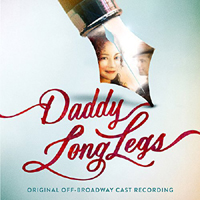 Original Off-Broadway Cast, 2015 (Ghostlight)
Original Off-Broadway Cast, 2015 (Ghostlight)  (3 / 5) In Jean Webster’s 1912 novel Daddy-Long-Legs, Jerusha Abbott is an orphan whose intelligence prompts orphanage trustee Jervis Pendleton to pay for her education. He requests monthly reports on her studies through letters from her, though he has made it clear that he will not reply, remaining anonymous. Ultimately, she discovers he is her roommate’s highly attractive uncle. The novel’s success inspired a play, a 1951 London musical (Love From Judy), and four films. (The Fred Astaire movie Daddy Long Legs is far removed from the original.) The challenge for any adapter is the book’s epistolary style; the reader sees Jerusha’s experiences through her highly personable missives, and falls for her as Jervis does. How to translate a bunch of letters to the stage? The obvious answer is to open up the story, crowding the stage with multiple sets and lots of classmates and friends who are referred to in the book. But John Caird (book) and Paul Gordon (songs) pared their musical to the bare bones: Jerusha, Jervis, and those letters, which comprise most of Jerusha’s songs, performed by Megan McGinnis with a fine sense of developing maturity. The letters are also the indirect source of the songs written for Jervis (Paul Alexander Nolan), as they represent his reactions to them. The greatest strength of the score is the arc of these letter songs. In “Like Other Girls,” Jerusha frets about fitting in, given her humble background, and she bemoans her ignorance of the classics in the delightful “Things I Don’t Know.” Jervis believably moves from reserved philanthropy (“She Thinks I’m Old”) to following Jerusha’s syllabus to wondering “What Does She Mean By Love?” Gordon convincingly explains Jervis’s reluctance to emotional attachments, a key reason why he keeps his identity secret even after meeting Jerusha in person. There are other gems — the sprightly “My Manhattan,” a valentine to New York, and the agonizing “Graduation Day,” when Jerusha’s heart breaks because she thinks her mysterious benefactor is a no-show. (He’s there, of course, and also hurting.) Not everything works. The opening is somewhat mired in exposition, especially Jerusha’s impersonation of another orphan. Jervis’ realization number, “Charity,” lacks the emotional punch it needs, and the finale, “All This Time,” is far too understated; we’re invested in this pair, and we want a bigger payoff. Gordon’s melodies are intimate and sweet, played by piano, cello and guitar. The score is not period, but it fits the property in other respects. A final note: Those who grew up with the novel may wonder why, in the musical, Jerusha doesn’t change her hated first name, foisted on her at the orphanage. Paul Gordon has said he wrote a song for that scene, but it didn’t work well — and also, unlike the character, he and Caird like the name “Jerusha.” — Laura Frankos
(3 / 5) In Jean Webster’s 1912 novel Daddy-Long-Legs, Jerusha Abbott is an orphan whose intelligence prompts orphanage trustee Jervis Pendleton to pay for her education. He requests monthly reports on her studies through letters from her, though he has made it clear that he will not reply, remaining anonymous. Ultimately, she discovers he is her roommate’s highly attractive uncle. The novel’s success inspired a play, a 1951 London musical (Love From Judy), and four films. (The Fred Astaire movie Daddy Long Legs is far removed from the original.) The challenge for any adapter is the book’s epistolary style; the reader sees Jerusha’s experiences through her highly personable missives, and falls for her as Jervis does. How to translate a bunch of letters to the stage? The obvious answer is to open up the story, crowding the stage with multiple sets and lots of classmates and friends who are referred to in the book. But John Caird (book) and Paul Gordon (songs) pared their musical to the bare bones: Jerusha, Jervis, and those letters, which comprise most of Jerusha’s songs, performed by Megan McGinnis with a fine sense of developing maturity. The letters are also the indirect source of the songs written for Jervis (Paul Alexander Nolan), as they represent his reactions to them. The greatest strength of the score is the arc of these letter songs. In “Like Other Girls,” Jerusha frets about fitting in, given her humble background, and she bemoans her ignorance of the classics in the delightful “Things I Don’t Know.” Jervis believably moves from reserved philanthropy (“She Thinks I’m Old”) to following Jerusha’s syllabus to wondering “What Does She Mean By Love?” Gordon convincingly explains Jervis’s reluctance to emotional attachments, a key reason why he keeps his identity secret even after meeting Jerusha in person. There are other gems — the sprightly “My Manhattan,” a valentine to New York, and the agonizing “Graduation Day,” when Jerusha’s heart breaks because she thinks her mysterious benefactor is a no-show. (He’s there, of course, and also hurting.) Not everything works. The opening is somewhat mired in exposition, especially Jerusha’s impersonation of another orphan. Jervis’ realization number, “Charity,” lacks the emotional punch it needs, and the finale, “All This Time,” is far too understated; we’re invested in this pair, and we want a bigger payoff. Gordon’s melodies are intimate and sweet, played by piano, cello and guitar. The score is not period, but it fits the property in other respects. A final note: Those who grew up with the novel may wonder why, in the musical, Jerusha doesn’t change her hated first name, foisted on her at the orphanage. Paul Gordon has said he wrote a song for that scene, but it didn’t work well — and also, unlike the character, he and Caird like the name “Jerusha.” — Laura Frankos
The Drowsy Chaperone
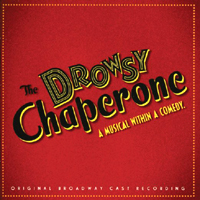 Original Broadway Cast, 2006 (Ghostlight)
Original Broadway Cast, 2006 (Ghostlight)  (3 / 5) This might be the first Broadway musical with commentary written into the script. Alone in his apartment, a musical theater devotee anonymously named Man in Chair plays the recording of one of his favorites, the (fictional) 1920s romp The Drowsy Chaperone. He then proceeds to provide footnotes on the stars and writers as we watch the show come to life in his apartment. On stage, it all worked beautifully and hilariously. With its dynamic original cast and inventive staging, The Drowsy Chaperone was unique in that it allowed those of us who adore musicals to see ourselves depicted on stage, while also giving us the benefit of watching a delightfully silly musical. But when taken out of the frame of the production, the score, by Lisa Lambert and Greg Morrison, proves to be merely decent. Though the songs are cute in their reminiscences of the jazzy musicals of the ’20s, they don’t move beyond hommage. The lyrics can be daffy and quirky (“Show Off”), but they never really channel the wit and sophistication of Lorenz Hart or Ira Gershwin. The music is light but fun, much helped by Larry Blank’s peppy, period appropriate orchestrations. The ensemble, clearly having a blast, revels in old school camp and bravado, and elevates the lyrics so that they seem more humorous than they are. Danny Burstein tastefully hams it up in “I Am Aldolpho,” Beth Leavel gleefully warbles Garland-style in “As We Stumble Along,” and Sutton Foster uses her star power to great effect in “Bride’s Lament.” But it’s co-librettist Bob Martin as the Man in Chair who shines brightest here. Though he has no song of his own, Martin offers anecdotes and opinions on the show within the show and its performers throughout the album. His commentary is hilarious and inventive, delivered with just the right touch of knowledge and enthusiasm. Overall, The Drowsy Chaperone is a highly enjoyable show and a fun album, but to quote the Man in Chair, “just ignore the lyrics.” — Matt Koplik
(3 / 5) This might be the first Broadway musical with commentary written into the script. Alone in his apartment, a musical theater devotee anonymously named Man in Chair plays the recording of one of his favorites, the (fictional) 1920s romp The Drowsy Chaperone. He then proceeds to provide footnotes on the stars and writers as we watch the show come to life in his apartment. On stage, it all worked beautifully and hilariously. With its dynamic original cast and inventive staging, The Drowsy Chaperone was unique in that it allowed those of us who adore musicals to see ourselves depicted on stage, while also giving us the benefit of watching a delightfully silly musical. But when taken out of the frame of the production, the score, by Lisa Lambert and Greg Morrison, proves to be merely decent. Though the songs are cute in their reminiscences of the jazzy musicals of the ’20s, they don’t move beyond hommage. The lyrics can be daffy and quirky (“Show Off”), but they never really channel the wit and sophistication of Lorenz Hart or Ira Gershwin. The music is light but fun, much helped by Larry Blank’s peppy, period appropriate orchestrations. The ensemble, clearly having a blast, revels in old school camp and bravado, and elevates the lyrics so that they seem more humorous than they are. Danny Burstein tastefully hams it up in “I Am Aldolpho,” Beth Leavel gleefully warbles Garland-style in “As We Stumble Along,” and Sutton Foster uses her star power to great effect in “Bride’s Lament.” But it’s co-librettist Bob Martin as the Man in Chair who shines brightest here. Though he has no song of his own, Martin offers anecdotes and opinions on the show within the show and its performers throughout the album. His commentary is hilarious and inventive, delivered with just the right touch of knowledge and enthusiasm. Overall, The Drowsy Chaperone is a highly enjoyable show and a fun album, but to quote the Man in Chair, “just ignore the lyrics.” — Matt Koplik
Dearest Enemy
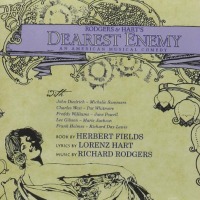 Studio Cast, 1981 (Beginners Records/Bayview)
Studio Cast, 1981 (Beginners Records/Bayview)  (4 / 5) A minor milestone in the history of American musical theater, Dearest Enemy (1925) was the first book show with a score entirely by Richard Rodgers and Lorenz Hart. It was a big success despite its seemingly killjoy subject matter, the American Revolution. Of course, even though George Washington was on hand as one of the characters, the show didn’t really focus on war: Its leading characters are a spunky American girl and a British officer, whose romance has a happy ending. Poised engagingly somewhere between operetta and musical comedy, this “baby-grand opera” was notably more clever than most ’20s shows, with a cheeky and witty book by Herbert Fields and a score that belies its age. “Here in My Arms” and, perhaps, “Bye and Bye” are the only items that gained any lasting popularity, in part because the remainder of the songs are worked so gracefully into the action; there’s a hint of period pastiche in numbers like “Heigh-ho, Lackaday” and “Where the Hudson River Flows.” This London studio recording of the score is flawed only in that the singers are accompanied just by piano and the overture is omitted. The cast boasts no star names — a supporting player named Jane Powell is obviously not the Jane Powell — but everyone is quite on top of the material. In particular, Michelle Summers as Betsy Burke manages to combine modern and archaic vocal styles with effortless charm. A lovely show gets much of its due here. — Richard Barrios
(4 / 5) A minor milestone in the history of American musical theater, Dearest Enemy (1925) was the first book show with a score entirely by Richard Rodgers and Lorenz Hart. It was a big success despite its seemingly killjoy subject matter, the American Revolution. Of course, even though George Washington was on hand as one of the characters, the show didn’t really focus on war: Its leading characters are a spunky American girl and a British officer, whose romance has a happy ending. Poised engagingly somewhere between operetta and musical comedy, this “baby-grand opera” was notably more clever than most ’20s shows, with a cheeky and witty book by Herbert Fields and a score that belies its age. “Here in My Arms” and, perhaps, “Bye and Bye” are the only items that gained any lasting popularity, in part because the remainder of the songs are worked so gracefully into the action; there’s a hint of period pastiche in numbers like “Heigh-ho, Lackaday” and “Where the Hudson River Flows.” This London studio recording of the score is flawed only in that the singers are accompanied just by piano and the overture is omitted. The cast boasts no star names — a supporting player named Jane Powell is obviously not the Jane Powell — but everyone is quite on top of the material. In particular, Michelle Summers as Betsy Burke manages to combine modern and archaic vocal styles with effortless charm. A lovely show gets much of its due here. — Richard Barrios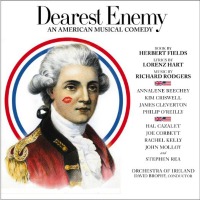 Studio Cast, 2013 (New World Records, 2CDs)
Studio Cast, 2013 (New World Records, 2CDs)  (4 / 5) To anyone wondering why it took nearly nine decades to come up with a complete Dearest Enemy, read the excellent notes that accompany this fine recording. As with so many musicals of an earlier age, even some of the big hits, the parts and orchestrations were either lost or in fragmentary shape. Enter Larry Moore, who reconstructed the score from various extant pieces and, when necessary, found entirely valid ways to bridge the remaining gaps. (At one point, a little Tchaikovsky gets tossed into the mix. Well, why not?) With David Brophy conducting the Orchestra of Ireland and a fine cast, we now have as definitive an Enemy as could be imagined. If it perhaps lacks a bit of the conviction of the earlier British recording, everyone performs with spirit and charm. The orchestra and ensemble sound luscious; Annalene Beechey and James Cleverton are dandy lovers; and Kim Criswell, as Mrs. Murray, manages to keep the excesses at bay and stay in character. Everyone else is equally good, some dialogue is included to give a fair sense of the show, and there’s even a guest star: Stephen Rea, in the spoken role of George Washington. A major work has been stirringly served here, as have Rodgers and Hart and, really, everyone who wants to know about the delights of 1920s musical theater. — R.B.
(4 / 5) To anyone wondering why it took nearly nine decades to come up with a complete Dearest Enemy, read the excellent notes that accompany this fine recording. As with so many musicals of an earlier age, even some of the big hits, the parts and orchestrations were either lost or in fragmentary shape. Enter Larry Moore, who reconstructed the score from various extant pieces and, when necessary, found entirely valid ways to bridge the remaining gaps. (At one point, a little Tchaikovsky gets tossed into the mix. Well, why not?) With David Brophy conducting the Orchestra of Ireland and a fine cast, we now have as definitive an Enemy as could be imagined. If it perhaps lacks a bit of the conviction of the earlier British recording, everyone performs with spirit and charm. The orchestra and ensemble sound luscious; Annalene Beechey and James Cleverton are dandy lovers; and Kim Criswell, as Mrs. Murray, manages to keep the excesses at bay and stay in character. Everyone else is equally good, some dialogue is included to give a fair sense of the show, and there’s even a guest star: Stephen Rea, in the spoken role of George Washington. A major work has been stirringly served here, as have Rodgers and Hart and, really, everyone who wants to know about the delights of 1920s musical theater. — R.B.
